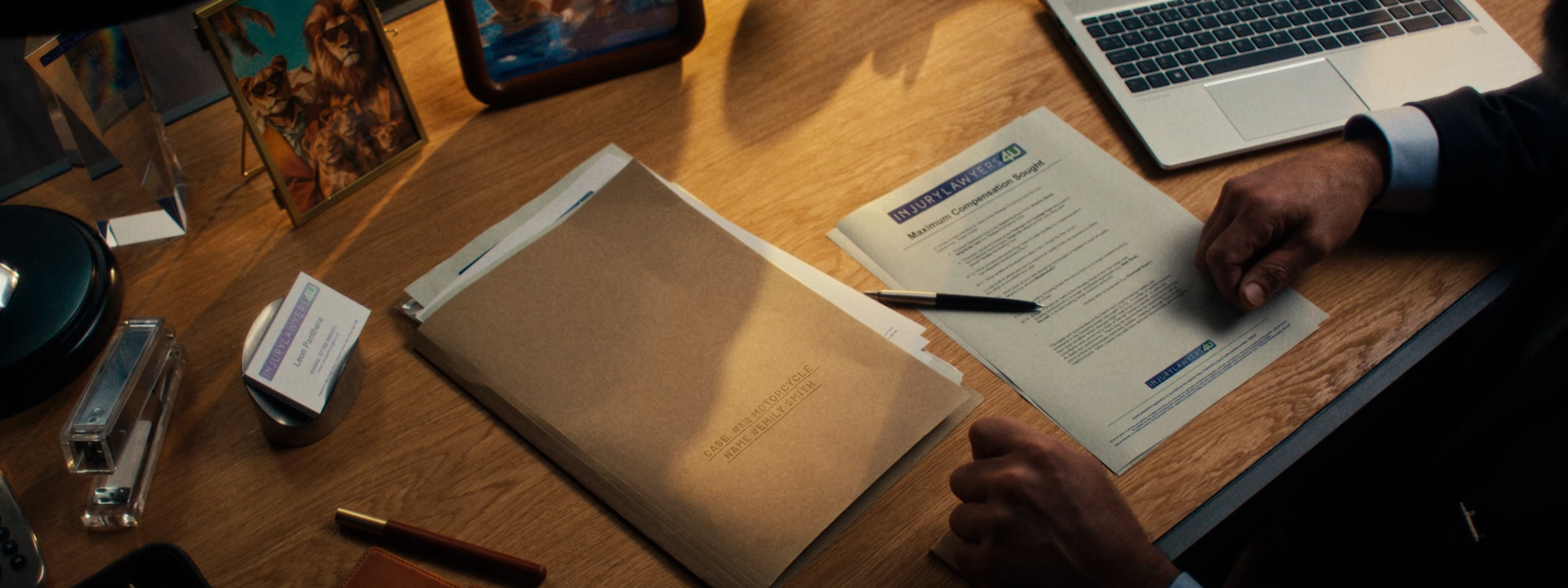Your back is one of the most important parts of the human body. It supports you at work, it’s the focal point when you rest at home and it’s fundamental in taking part in everyday activities like pushing, pulling, lifting and beyond. If the worst happens and an accident injures any part of your back, your life can change in a matter of moments.
There are all sorts of ways you can damage your back, whether it’s an injury at work, out in the pubic or even at home. Either way, if you’ve injured your back in an accident that wasn’t your fault, you might be entitled to compensation.

Am I eligible to make a back injury claim?
You can make a back injury claim no matter who you are. The way to ensure a victory in this claim is by building a solid and airtight case against the negligent party you believe is responsible for your back injury. There must be evidence — the more, the better — that proves this negligence and can confirm that they broke any of the laws in the Health and Safety at Work Act 1974, the Occupiers Liability Act 1957, or any other applicable legislation.
There’s also a strict time limit from the moment of your accident that a claim can be made. So be sure to have all your ducks in a row and within this limit when you approach us about a back injury claim.
Common types of back injury
Your back is made up of so many moving parts. Sure, you might know about the spine and shoulder blades etc, but there are parts of the back that you might never even consider until the worst has happened. The below list details some of the most common types of back injury you might receive in an accident that wasn’t your fault.
- Bulging disc — This is where a spinal disc bulges out of its normal position without breaking open. This can press on nerves and cause pain.
- Compression fractures — This is where vertebra collapses, often occurring in older people.
- Degenerative disc disease — This normally occurs after years of wear and tear on a spinal disc. It can lead to chronic pain and other issues.
- Facet joint syndrome — This is a condition where the facet joints in the spine become arthritic or damaged and can cause localised pain and stiffness.
- Fractures — This can happen anywhere in the back and normally happens after trauma.
- Herniated disc — This is when the soft centre of a spinal disc pushes through a crack in the tough exterior. This can press on spinal nerves and cause pain, weakness and numbness.
- Ligament sprain — This happens when the ligaments connecting the bones in the back are overstretched or torn. This can cause pain and reduced mobility.
- Muscle spasms — These are involuntary muscle movements that can cause sharp and sudden pain.
- Muscle strain — This is when the muscles in the back are torn or stretched and can lead to uncomfortableness and pain.
- Sacroiliac joint dysfunction — This is when the sacroiliac joints, where the spine meets the pelvis, become inflamed and lead to pain in the lower back.
- Sciatica — This is when the sciatic nerve is compressed or irritated and can lead to sharp pain in the lower back and leg.
- Spinal cord injuries — These are injuries to the spinal cord itself and can lead to loss of function below the injured area and even paralysis in the worst cases.
- Spinal stenosis — This is when there is a narrowing of the spinal canal. This puts pressure on the spinal cord and nerves and leads to pain and numbness.
- Spondylolisthesis — This is when one of the many vertebra slips out of place and onto the below bone. This causes pain, stiffness and can even cause symptoms in the legs.
Please note, this is not an exhaustive list and there may be some more esoteric injuries that haven’t been covered here.
Common causes of back injury
There are as many ways to injure your back as there are injuries you can sustain. However, it’s important to know some of the most common so that you can avoid them in the first place.
- Bulging disc — This can be caused by repetitive movements, poor posture or improper lifting, all common occurrences in the workplace.
- Compression fractures — This normally occurs because of minor trauma, a small fall or impact to someone with weaker bones. As stated, this is far more common in the elderly.
- Degenerative disc disease — This is normally tied to genetics but can be brought on by repetitive stress on the spine, a common occurrence in the workplace.
- Facet joint syndrome — This can occur after trauma, repetitive movements or even arthritis.
- Fractures — Fractures are normally caused by trauma and high impacts to the back like a fall. This can happen when the party responsible for your care hasn’t properly risk assessed an area you may be working or even living in.
- Herniated disc — Hernias of all kinds normally spring up after incorrect heavy lifting, sudden twisting movements or direct area injury. This is also the case for spinal hernias.
- Ligament sprain — Sprains occur because of sudden movements, falls or trauma.
- Muscle spasms — This happens if you are overexerting yourself, are dehydrated, make a sudden movement or have poor posture.
- Muscle strain — Similar to ligament sprains, strains are caused by sudden movements, falls or trauma.
- Sacroiliac joint dysfunction — This condition normally occurs during pregnancy or after a traumatic injury.
- Sciatica — This condition springs from other injuries like herniated discs, bone spurs or spinal stenosis.
- Spinal cord injuries — These occur after intense trauma or penetrating injuries like stabbing or gunshots.
- Spinal stenosis — This normally comes with age, arthritis or other spinal conditions.
- Spondylolisthesis — This can occur from trauma but may also simply come with degeneration due to age.
Again, this is not every possible way these injuries can occur. There are many ways not featured, these are simply the most common.
How much compensation will I get for my back injury?
You can always get a rough estimate of how much compensation you will receive from a successful back injury claim by using our handy compensation calculator. This will let you know the general damages — the standard amount of compensation depending on the specific injury. However, the calculator won’t give you the amount of special damages — the parts of the claim that are exclusive to your injury. This can include financial hardship due to time off work, rehabilitation costs or travel costs.
What evidence should I have to support my back injury claim?
To put together a claim that will hold water, we’ll need some detailed and extensive information from you about the injury to your back:
- The date, time, and specific location of the accident.
- Details of the incident, including your account of what happened and who you believe was at fault.
- Contact and insurance information of all parties involved.
- Any available police reports documenting the occurrence.
- Photos or videos from the scene, which could include photos taken by you or CCTV from the scene.
- Contact details for any witnesses.
- Records of any medical treatment you received, whether at the scene or afterwards at the doctor’s office or hospital.
Our team at Injury Lawyers 4u can offer you free legal advice, will help you to understand your rights and whether or not you have a valid claim. And if you haven’t been able to gather any of the above evidence, reach out and we’ll see what we can do to help.
What are the time limits for making a back injury claim?
You only have a short time limit of three years to pursue a back injury compensation claim in the UK. This time limit begins from the moment of your injury or from the moment you are diagnosed with the injury. So the sooner you start your case, the sooner you should expect recompense and the more time you’ll have to gather evidence.
You should look to kick off a compensation claim for your back injury as close to the incident as possible in order to gather the most relevant evidence, but after you’ve received medical attention for the injury.
Why should I make a back injury claim?
Even if you’ve sustained a minor back injury, this can result in loss of income. Whether it stems from time off work, medical or physiotherapy bills or something else entirely, back injuries affect everyone differently, as do their costs. A particularly bad back injury can seriously impact your quality of life and may even result in major lifestyle changes. From lifelong chronic pain to potential paralysis, there’s a spectrum of effects that will change how you interact with the world around you., not to mention how it may affect you mentally. A back injury at work or in a landlord-owned property might affect how you trust these places in the future and the pain associated might be mental rather than physical.
Seeking compensation to cover these lifestyle changes and any rehabilitation you’ve had to endure can be a form of justice for your injury. It also ensures that those responsible pay for the damage they have caused, no matter how severe. At Injury Lawyers 4u, we know how much a back injury can impact on your life, so we do everything we can to help you receive the compensation that you deserve.
Receiving your compensation for your back injury
When back injuries happen, life can be thrown into disarray in an instant. If you believe your back injury was the fault of another party, get in touch with our team of specialists at Injury Lawyers 4u and we’ll fight for justice in your corner. What’s more, we operate on a no-win no-fee basis, so you won’t pay a penny if we’re not successful. Contact us via our quick contact form or phone us directly on 0333 400 4445
Frequently asked questions
How long does it take to settle a back injury compensation claim?
Every back injury compensation claim is different due to the severity of the injury, the parties involved and whether or not these parties are willing to play fair. The more complex the case, the longer it will take to receive compensation. The more simple the case, the faster it will be.
Do I need a lawyer to file a back injury claim?
It’s never mandatory to involve an injury lawyer when making a back injury claim. However, it is highly recommended due to the potential complexity of cases. It can also be extremely uncomfortable to go after a current or former employer, landlord or other duty holder without professional assistance.
Can I still make a back injury claim if the accident was partially my fault?
You can still make a claim if the accident that caused your injury was partially your fault. However, the less involved you were in the incident, the more compensation you should expect to receive.
Will my back injury claim go to court?
It really depends on if the responsible party for your back injury wants to settle your claim outside of court or not. If they refuse to claim responsibility, it can be harder to reach a settlement. This is when the court gets involved and a jury or judge will decide the fate.


